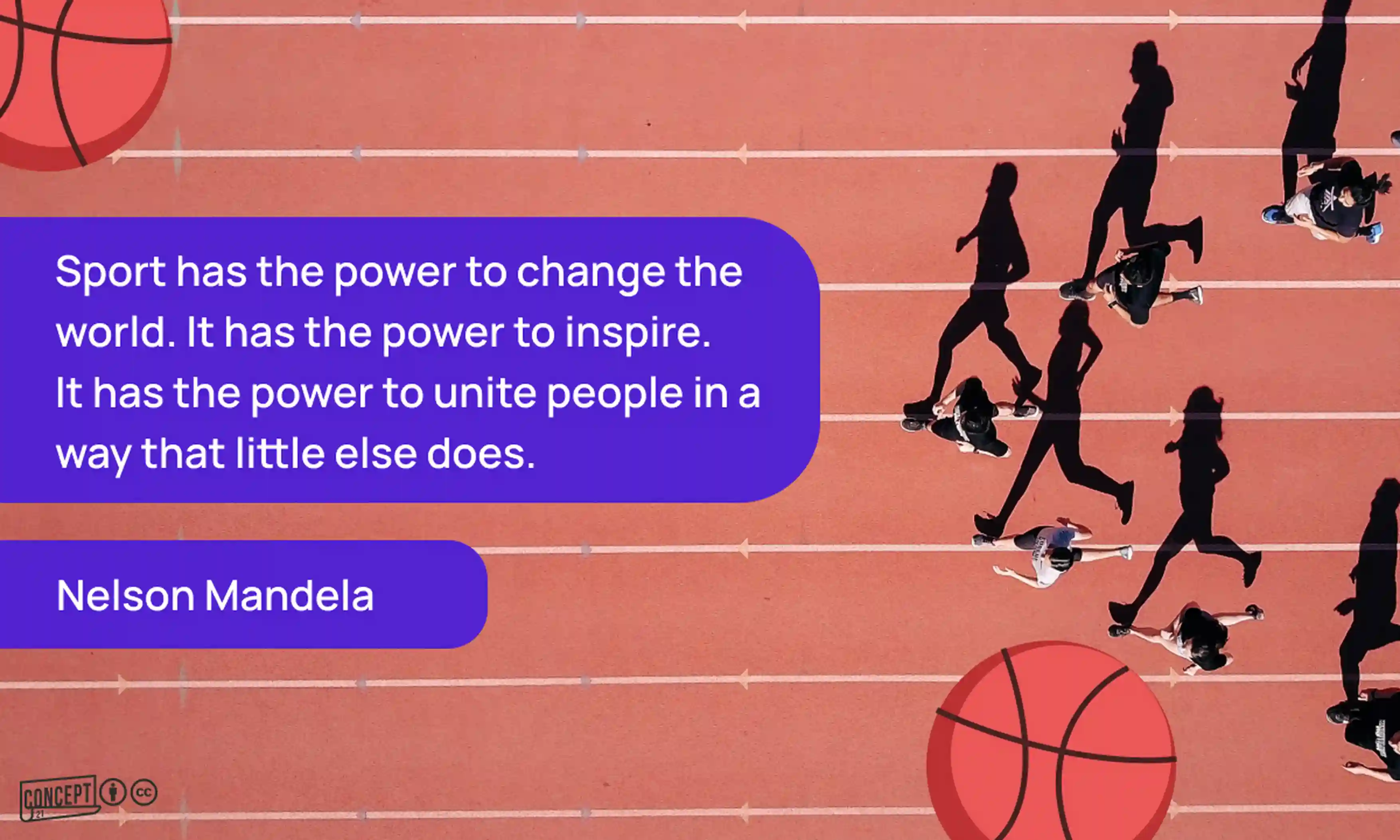Back to all Articles
From Athletes to Fans: The Power of Sports Marketing

Sports marketing has become an integral part of the global economy, with a projected worth of 83.1 billion by 2023. From big-name sponsors to merchandise sales, sports teams, and athletes have leveraged their popularity to create powerful marketing campaigns that capture the attention of millions of fans. However, while the world of sports marketing can be lucrative, it can also be complex and challenging.
In this comprehensive guide, we'll take a deep dive into the world of sports marketing, exploring the different strategies and techniques businesses can use to capitalize on the power of sports.
So if you're ready to dive into the exciting world of sports marketing, grab your playbook and join us on this journey. Let's explore how you can use the power of sports to score big for your business.
In this comprehensive guide, we'll take a deep dive into the world of sports marketing, exploring the different strategies and techniques businesses can use to capitalize on the power of sports.
So if you're ready to dive into the exciting world of sports marketing, grab your playbook and join us on this journey. Let's explore how you can use the power of sports to score big for your business.
What is Sports Marketing?
Sports marketing is a form of marketing that focuses on the promotion of sports-related products and services. It involves the use of various strategies and tactics to promote sports-related products and services, such as apparel, equipment, and tickets.
It also involves the use of various media outlets, such as television, radio, print, and digital media, to reach potential customers. Sports marketing is an important part of any successful sports organization or team.
It also involves the use of various media outlets, such as television, radio, print, and digital media, to reach potential customers. Sports marketing is an important part of any successful sports organization or team.
Why is Sports Marketing Important?
Sports marketing is an essential part of any successful sports organization or team. It helps to create brand awareness for the team or organization and can help to increase ticket sales and merchandise sales.
Sports marketing also involves creating relationships with sponsors and other partners that can help to promote the team or organization further. This includes creating partnerships with companies that can provide financial support for the team or organization as well as providing promotional opportunities for sponsors.
Additionally, it involves building relationships with media outlets that can help to spread awareness about the team or organization.
Sports marketing also involves creating relationships with sponsors and other partners that can help to promote the team or organization further. This includes creating partnerships with companies that can provide financial support for the team or organization as well as providing promotional opportunities for sponsors.
Additionally, it involves building relationships with media outlets that can help to spread awareness about the team or organization.
How to Get Into Sports Marketing?
Getting into sports marketing can be a challenging but rewarding career path. To get started in sports marketing, it is essential to have a strong understanding of the industry, its various aspects, and also marketing principles and strategies.
Additionally, it is essential to have strong communication skills and be able to work well with others.
Finally, it is vital to have a passion for sports and an understanding of how to market sports-related products and services effectively.
Additionally, it is essential to have strong communication skills and be able to work well with others.
Finally, it is vital to have a passion for sports and an understanding of how to market sports-related products and services effectively.

How to create an effective sports marketing strategy?
Creating an effective sports marketing strategy requires careful planning and execution.
- First, consider your target audience, budget, timeline, and objectives.
- Next, research your competitors’ strategies to gain insights into what works and doesn’t.
- Once you clearly understand your goals and objectives, you can begin to develop a plan for how you will reach your target audience.
- You should also measure your campaigns' success to ensure they are meeting your goals.
- Don’t forget to keep also an eye on changes in consumer behavior to adjust your strategy accordingly.
Examples of sports marketing
Many different types of sports marketing campaigns can be used to reach your target audience. Some examples include:
- Sponsorships: Sponsoring teams or athletes can help brands gain exposure and create positive associations with their products or services.
- Advertising: Advertising on television, radio, or online can help brands reach their target audience in an effective way.
- Social Media: Social media platforms such as Twitter, Facebook, and Instagram can be used to engage with fans and promote products or services.
- Events: Hosting fan days or autograph signings can help brands create positive associations with their products or services.
- Promotions: Offering promotions such as discounts or giveaways can help brands increase sales and build customer loyalty.
Famous sport marketing campaigns that you may kno
There are many examples of successful sports marketing campaigns. One example is Nike's "Just Do It" campaign, which has become one of the most iconic campaigns in history.
Another example is Gatorade's "Gatorade Thirst Quencher" campaign which has become synonymous with sports drinks.
Finally, Adidas' "Impossible Is Nothing" campaign has become one of the most recognizable campaigns in recent years.
Another example is Gatorade's "Gatorade Thirst Quencher" campaign which has become synonymous with sports drinks.
Finally, Adidas' "Impossible Is Nothing" campaign has become one of the most recognizable campaigns in recent years.
Sports marketing - Summary

Sports marketing is more than just selling products or promoting events. It's about creating meaningful connections between athletes, brands, and fans. By harnessing the power of sports, marketers can inspire and engage people on a deeper level, tapping into the emotions, passions, and values that make us human.
Whether you're a seasoned sports marketer or just starting out, remember that the ultimate goal is to create something that goes beyond the game. Something that connects with people on a personal level and leaves a lasting impression.
So, go forth and use the power of sports to make a difference in the world. And remember, as Nelson Mandela once said, "Sport has the power to change the world. It has the power to inspire. It has the power to unite people in a way that little else does."
Whether you're a seasoned sports marketer or just starting out, remember that the ultimate goal is to create something that goes beyond the game. Something that connects with people on a personal level and leaves a lasting impression.
So, go forth and use the power of sports to make a difference in the world. And remember, as Nelson Mandela once said, "Sport has the power to change the world. It has the power to inspire. It has the power to unite people in a way that little else does."
F.A.Q
What is sports marketing?
Sports marketing is a form of marketing that focuses on the promotion of sports-related products, services, and events. It involves the use of various strategies and tactics to reach out to potential customers and increase brand awareness.
How can I get into sports marketing?
To get into sports marketing, you will need to have a good understanding of the industry, its trends, and the target audience. You should also have a strong background in marketing, advertising, and public relations. Additionally, having experience in the sports industry can be beneficial.
Why is sports marketing important?
Sports marketing is important because it helps to create a connection between brands and their target audience. It also helps to increase brand awareness and loyalty, as well as drive sales. Additionally, it can help to create a positive image for the brand and increase its visibility in the marketplace.
What are some examples of sports marketing?
Examples of sports marketing include sponsoring professional athletes or teams, creating promotional campaigns for sports-related products or services, and organizing events such as sports tournaments or fan meet-ups. Additionally, many brands use social media platforms to engage with their target audience and promote their products or services.
Karol Andruszkow
Co-founder and CEO of Concept21
Co-founder and CEO of Concept21
Karol is a serial entrepreneur, e-commerce speaker, and founder of 3 startups. He advised hundreds of companies and led projects worth over EUR 50 million for financial institutions across Europe.
He earned two master's degrees – Computer Science and Marketing Management – in Poland and Portugal. He has 10+ years of experience in Silicon Valley, Poland, Portugal, USA, and UK, helping startups, financial institutions, and SMEs improve operations through digitization.
He earned two master's degrees – Computer Science and Marketing Management – in Poland and Portugal. He has 10+ years of experience in Silicon Valley, Poland, Portugal, USA, and UK, helping startups, financial institutions, and SMEs improve operations through digitization.
Karol Andruszkow
Co-founder and CEO of Concept21
Co-founder and CEO of Concept21
Karol is a serial entrepreneur, e-commerce speaker, and founder of 3 startups. He advised hundreds of companies and led projects worth over EUR 50 million for financial institutions across Europe.
He earned two master's degrees – Computer Science and Marketing Management – in Poland and Portugal. He has 10+ years of experience in Silicon Valley, Poland, Portugal, USA, and UK, helping startups, financial institutions, and SMEs improve operations through digitization.
He earned two master's degrees – Computer Science and Marketing Management – in Poland and Portugal. He has 10+ years of experience in Silicon Valley, Poland, Portugal, USA, and UK, helping startups, financial institutions, and SMEs improve operations through digitization.
SHARE:
